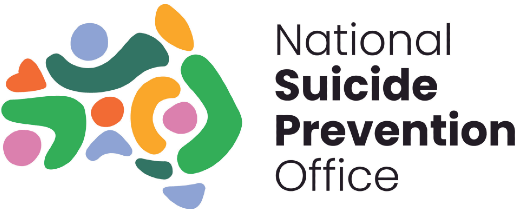Over 18 months, the Adviser and the National Suicide Prevention Taskforce engaged with different levels of government and portfolios, organisations working in suicide prevention, researchers, leaders in Aboriginal and  Torres Strait Islander suicide prevention and community members.
Torres Strait Islander suicide prevention and community members.
A deliberate decision was made to learn about mental health and the suicide prevention system through listening to the lived experience of people who interacted with it at a time when they most needed support. The voice of lived experience shaped the Advice more than any other source of inquiry. The clarion call was for a more connected and compassionate approach which takes support to people – where they are when they experience distress.
To ensure the reforms meet people where they need early intervention, the guiding principles for system reform is ‘whole of system, whole of life.’ This calls for a focus on prevention and early intervention, together with more integrated and compassionate service options that strengthen and extend current support.
To achieve this, a shared responsibility for suicide prevention is required across all levels of government, all portfolios and all communities. Each has an essential role for people who are vulnerable to suicide – reducing distress, building a sense of connection and strengthening hope.
In April 2021, National Suicide Prevention Adviser Christine Morgan launched the Final Report with a briefing webinar led by the voice of Australians with lived experience. More than 300 people registered to join the conversation, and the webinar is now available for download.
Compassion First
This second report details eight practical and achievable recommendations and actions for driving change across Australia. Informed by lived experience, the report identifies how a more connected and compassionate approach to suicide prevention will assist people vulnerable to suicide by leveraging the full range of services, touchpoints, policy drivers and resources available to all governments. Its approach focuses on the whole picture of a person’s life, identifying and using appropriate life turning points to engage with people to prevent escalation into suicidal crisis, taking help to people – where they are, and in a way that relates to their needs.
Connected & Compassionate
This second report details eight practical and achievable recommendations and actions for driving change across Australia. Informed by lived experience, the report identifies how a more connected and compassionate approach to suicide prevention will assist people vulnerable to suicide by leveraging the full range of services, touchpoints, policy drivers and resources available to all governments. Its approach focuses on the whole picture of a person’s life, identifying and using appropriate life turning points to engage with people to prevent escalation into suicidal crisis, taking help to people – where they are, and in a way that relates to their needs.
Shifting the Focus
The third report demonstrates a model for operationalising a comprehensive whole of government approach to suicide prevention, including a decision making tool to be used by government portfolios to identify targeted distress reduction initiatives. It highlights the critical role that multiple sectors and government portfolios have in suicide prevention, and provides practical guidance on the steps government agencies can take to embed this into targeted initiatives, service planning, design, implementation and evaluation.

